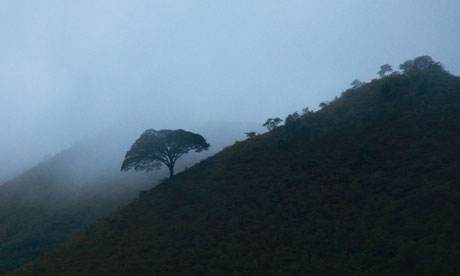Re: “Brazil’s blueprint for reforestation”
Dear Editor,

Your article on June 12, “Brazil’s Blueprint for Reforestation,” correctly points out that reforestation efforts in countries such as Brazil are sorely needed. Vast land restoration like the one demonstrated at Miguel Pereira prove that industrial-scale re-vegetation of depleted soils is entirely possible. Land rejuvenation is necessary and provides for larger long-term economic returns in the form of wages for those returning to the region. Additionally, restoration restores “ecological services” like clean air, water, and soil, and locks carbon back underground.
However, your article scarcely mentions any solutions to the problem brought about by logging, coffee plantations, and cattle ranching that created the massive deforestation and destruction of the local ecosystem. Without any policy and regulation changes, such reforestation efforts will likely yield a net loss scenario. As you suggest, the 950 hectares restored at Miguel Pereira and the 1,200 hectares planned to be restored for the 2016 Rio Olympics pale in comparison to the landmass lost each year to deforestation, which the International Union for Conservation of Nature estimates to be the size of New York state.
This losing battle can be corrected by instituting regulations that allow for the free movement of business activity while also providing adequate environmental protection. Such an arrangement already exists in the United States in the kaolin industry, which utilizes strip mining, one of the most destructive forms of extraction. However, U.S. regulations require kaolin companies operating within the country to rebuild and restore land destroyed by the extraction. This arrangement allows for efficient extraction of kaolin, affords environmental protection, and allows U.S. businesses to remain competitive with Chinese rivals. The solution for reforestation is within reach; all that is needed are proactive measures to slow the rate of deforestation. Although the United States and Brazil have different levels of technical and regulatory sophistication, Brazil should look to emulate this system while adapting such measures to its own unique challenges.
Sincerely,
Andrew Harding
Research Associate at the Council on Hemispheric Affairs

